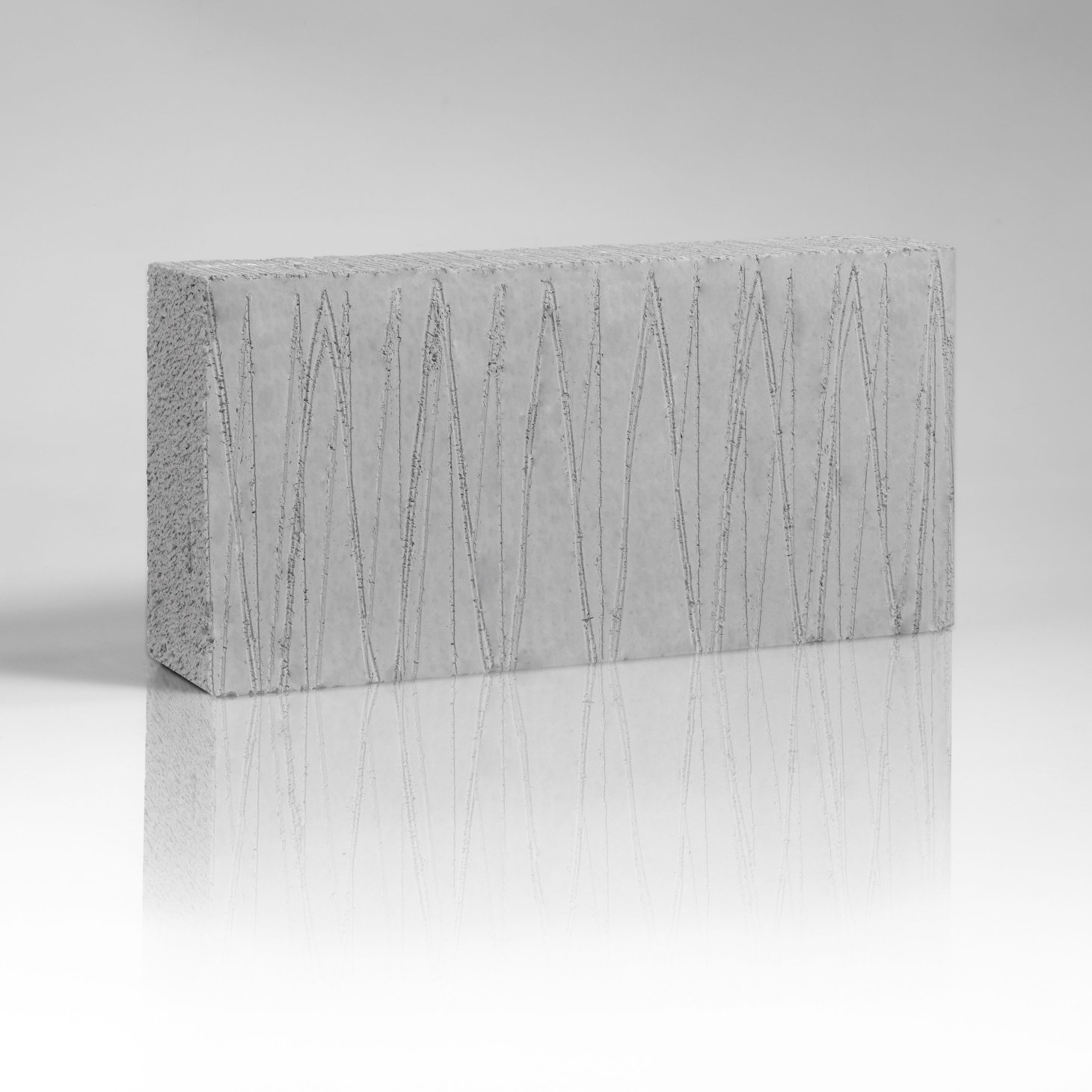
In this blog, we break down why aircrete is the block of choice for housebuilding.
When it comes to building materials, concrete blocks have long been a popular choice. But not all concrete blocks are the same. Different blocks possess different qualities, but here we outline why aircrete is the best overall choice for housebuilding.
Understanding aggregate blocks
While both dense and light aggregate blocks have their uses, they fall short when it comes to the thermal efficiency and ease of use that aircrete offers, especially in modern housebuilding.
Dense aggregate blocks
Also known as solid concrete blocks, dense aggregate blocks are made from a mixture of cement, sand, and coarse aggregates. These blocks are heavy and robust, making them a popular choice for load-bearing walls and structural applications.
Light aggregate blocks
Lightweight concrete blocks, also known as medium dense, are made by replacing some or all of the aggregate in standard concrete with lightweight materials, such as expanded clay, shale, or slate. This substitution results in a concrete block that is lighter in weight but still maintains a high level of compressive strength.
Aircrete blocks
Aircrete is a lightweight, precast building material made from a mixture of cement, lime, sand, water, and aluminium powder. This unique combination creates a chemical reaction that produces hydrogen gas, causing the mixture to expand and form a cellular structure. The material is then cured in an autoclave, which results in a strong and super lightweight block.
What are the benefits of building with aircrete?
Let’s explore the benefits of using aircrete blocks, for both the construction and in-use phases of a building, further and find out what makes them the ideal choice for wall building.
Thermal efficiency
The real selling point of aircrete blocks is their thermal performance. The cellular structure of aircrete allows it to outperform heavier alternatives, with variants like H+H Blocks Solar Grade offering thermal conductivity as low as 0.11 W/mK.
This puts aircrete at an advantage when it comes to designing low carbon homes that meet – and exceed - building regulations. The low U-values that can be reached by building walls with aircrete blocks, combined with the levels of airtightness that can be achieved, helps to ensure buildings easily meet the thermal performance requirements laid out in Part L of the building regulations. Aircrete has also been used successfully in Passivhaus construction, one of the strictest building standards around for thermal performance.
Using aircrete can greatly enhance the energy performance of a building’s structural fabric, making a dwelling low-carbon in use. This helps to reduce its operational carbon footprint and saves residents money on energy bills.
Strength
Celcon Blocks have a density ranging between 460 – 730 kg/m3. H+H Blocks Standard Grade are more than suitable for one and two storey builds. Aircrete can be strengthened to achieve a higher compressive strength, making it compatible with the construction of three and even four storey residences.
H+H Blocks High and Super Strength Grade for example, will meet or exceed the strength requirements for most detached and semi-detached homes, as well as low-rise apartment buildings.
Acoustic insulation
Along with thermal efficiency, the cellular structure of aircrete provides excellent acoustic insulation, making aircrete an excellent choice for party or separating walls in low rise buildings.
Sustainability
The embodied carbon of aircrete blocks can be lower than denser blocks due to their unique manufacture, which negates the need for aggregates as well as cement in their production, making aircrete a more sustainable masonry alternative.
H+H’s aircrete products are also made using 80% recycled materials: pulverised fuel ash or PFA, a by-product of coal-fired power generation, is used as the bulking agent in their manufacture.
On site benefits
Aircrete blocks are known for being lightweight, making them easier to handle, transport and install. They are also suitable for a wide range of applications including use below DPC and in foundations.
H+H Foundation Blocks are a groundworks solution that helps to speed up time on site, reducing labour costs. They are a high-performance alternative to traditional masonry foundation construction using a cavity-infill method, that is simpler and faster to install.
Considering overall performance and usability, aircrete blocks are the superior product choice for the vast majority of home builds.
Explore the full aircrete range to discover the benefits by project.